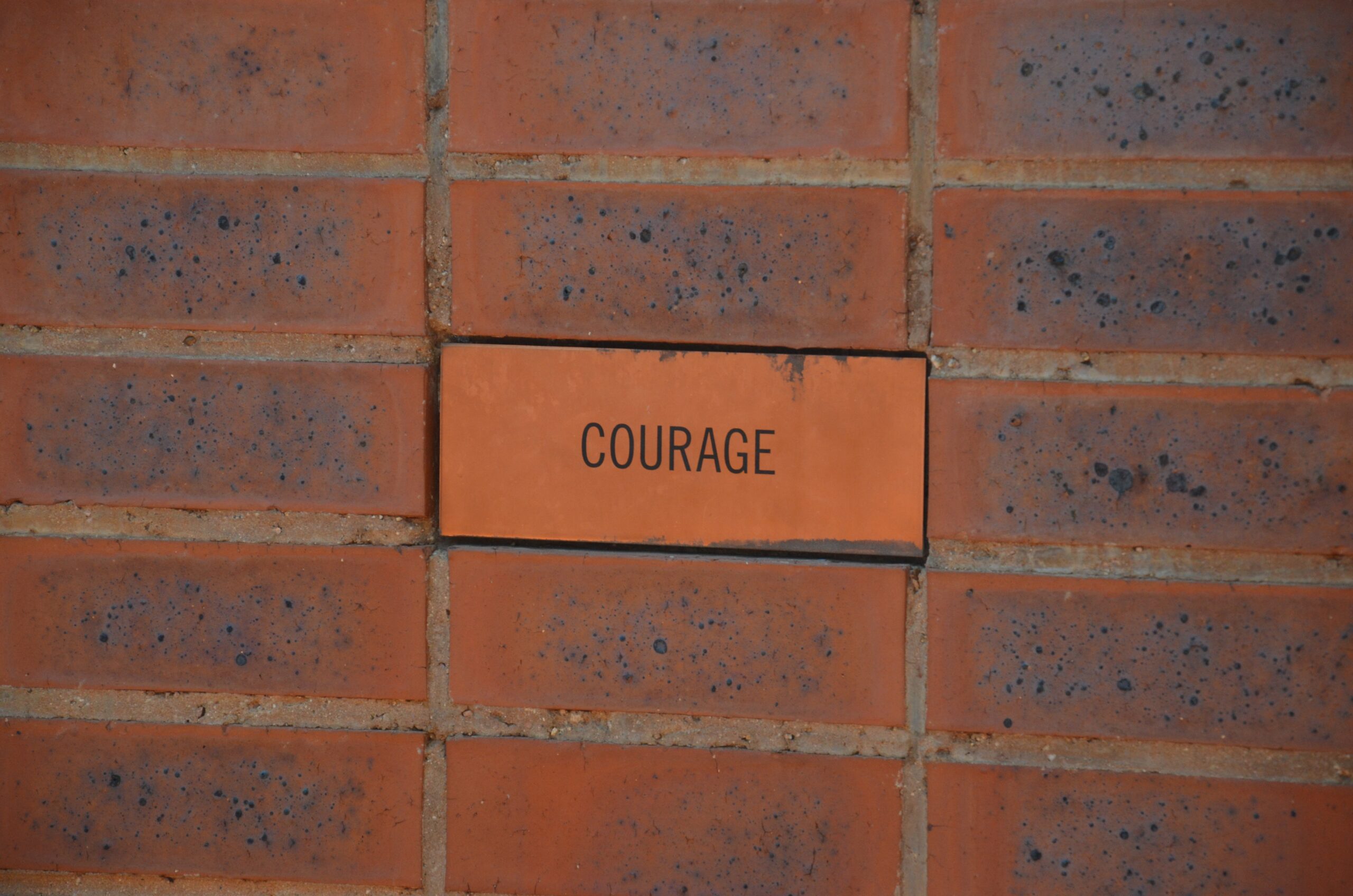
Six Powerful Strategies for Developing Courageous Leadership Influence
Being laser-focused on my leadership development series on Courageous Leadership, this article catches my eye.
In Courage over Comfort, the author shares six powerful strategies for developing courage. It goes straight to the heart of the matter – being a courageous leader can be very uncomfortable!
The article deeply resonates with me.
Why?
Because I agree…our brains are wired to seek comfort – to take the easy path!
In my Courageous Leadership series, we talk about lessons learned from climbing Mount Kilimanjaro. One of the common mistakes is to take the “seemingly easier route.” The easy path can have dire consequences in both mountain climbing, as well as for your leadership influence.
When we shy away from these important leadership responsibilities, we hurt overall leadership influence. Yes, being too nice and too focused on empathy, inadvertently hurts those we mean to help.
Interestingly, I discuss the upside and downside of empathy in my upcoming series, The Grateful Leader.
After reading, let me know what you think. I’m curious to hear your thoughts.
Title: Courage Over Comfort: How To Overcome Fear When Leading Others
Publication: Forbes
By: Rasmus Hougaard
Date: July 12, 2022
Any executive knows that the role of leadership isn’t generally as glamorous as others might assume. One of the primary roles of a leader is to make and execute hard decisions. Making hard decisions often means that others will get hurt or disagree with you, resulting in confrontation and discomfort.
Mastering courage is foundational to being a wise compassionate leader — the most effective leadership style, according to the research collected for our newest book. Wise compassionate leaders are able to do the hard things of leadership in a human way, resulting in higher levels of engagement, performance, loyalty, and well-being for their people. But this isn’t the way that many lead. So what exactly keeps a leader from choosing the courageous path?
Courage Versus Comfort

Overcoming our comfort-seeking orientation requires courage. Courage is different from fearlessness. With courage, we still experience fear, dread or concern. But courage is the inner strength to overcome our fear so we can take needed action or engage in a necessary confrontation.
If we want to become more compassionate leaders, we need to develop and manifest courage. Wise compassionate leaders do not hide. They do not point their fingers at others and shirk responsibility. They do not avoid the hard things or difficult decisions. Instead, they speak up when necessary and live their values. It is easy to stay in our comfort zone. But it is only when we get out of our comfort zone, embrace vulnerability, and find the courage to do hard things and face inevitable confrontations that we can be truly effective leaders.
The Courage to Be Vulnerable
It’s not just courage that we need to become the best leaders; it’s how we put that courage into practice. Vulnerability is a courageous act and the foundation of choosing courage over comfort. We can see other perspectives and more easily connect with people by being vulnerable, but vulnerability is often seen as a weakness. No one likes to expose their flaws. But when we have the courage to be vulnerable, we open a door to truly human connection. As leaders, we don’t have all the answers. We don’t always know the right thing to do, and we make mistakes. When we are vulnerable, we allow people to see our humility and our humanity. It creates opportunities for others to be vulnerable, too.
Courageous Confrontations
Once you open yourself up to vulnerability, then comes the next hard step: welcoming confrontation. If you cannot readily face conflict, you hinder your performance, negatively impact your career progress, and negatively impact the performance of your team or organization.
Confrontation is an emotionally loaded word for many of us, but it doesn’t need to be. The essence of a confrontation is the friction, no matter how slight, between two or more parties, based on opposing views. Confrontations can be anything from a subtle disagreement to addressing issues of perceived discrimination, bullying, or harassment.
But confrontations can be positive. If well managed, they are vital to increasing understanding, enhancing innovation, and implementing cultural change. To better develop wise compassionate leadership, it is important to recognize the fact that confrontations in themselves are not inherently negative. They only become negative when handled in unskillful ways – or when not handled at all. Confrontations, at their core, are merely expressions of two diverse points of view. When we enter confrontations with courage and an open mind, we can learn and grow. In this way, confrontation should be seen as an opportunity. Opposing views create new thinking, and new thinking often leads to progress.
Strategies for Developing Courage in Your Leadership
To rewire yourself for a more courageous style of leadership, you must first learn to manage your fear and turn it into courage. To find courage, start by asking yourself about your intention. Considering your intention can help you enter and stay in uncomfortable situations with others. If you know that your intention is positive, that you are intending to bring benefit to the person, it will ease the burden of the situation. The following are six strategies for developing courage.
1. Get comfortable with confrontation
It takes courage to initiate a difficult conversation, or engage in confrontation, even if the friction that causes that confrontation comes from something simple like delivering constructive feedback. Aim to get uncomfortable regularly, so it becomes easier and easier to exercise your courage muscle.
2. Explore the impact of your courageous confrontations
An hour, a day, or a week after a courageous conversation, ask people how they feel about it. Explore whether it was helpful for them or not. Listen carefully and learn from what they experienced.
3. Tackle any change that’s needed head-on
It benefits no one to maintain the status quo if the status quo needs changing. You’ll move through issues faster and with less discomfort and disruption if you face them head-on, instead of letting them stew and fester. Say what needs to be said. Do what needs to be done. And be proud of finding the courage it takes to initiate positive change.
4. Listen to your inner knowing
Your body can often detect issues that need attention before your mind consciously acknowledges them. Intuition is a powerful thing. If you feel as though something isn’t right, you should take that as a sign to act. Ignored problems don’t solve themselves. Search inside for the next best step, and then act on it.
5. Get peer support
When you find an issue particularly hard to confront, share it with a trusted peer. Be honest about the fact that you find it difficult. They may have a good or helpful idea. More likely, though, simply sharing your difficulty will help you. The fear that often holds us back increases when we keep it to ourselves, when we try to ignore it or bury it. When we share it with others, fear diminishes, and a sense of relief makes action more possible. Sharing with others and getting their input will also help you broaden your perspective and make you more effective in dealing with the situation constructively.
6. Find the courage to endure
One of the most challenging things for leaders to do is lead through change. It requires courage to face resistance when others are out of their comfort zone. Being courageous requires stamina and patience. It requires an understanding that just because you are able to make the leap, it may not be so easy for others to follow. In this way, wise compassion is about knowing when to push forward and having the courage to endure the discomfort of creating time and space for others to come on board.
This article was originally published HERE.
This article was also featured in my July 2023 Newsletter. Get your copy HERE.
Let’s discuss a tailor-made talk to meet your specific needs.
Virtual speaking event? No problem!
Check out my Speaker page HERE.
To schedule, a call contact me at danita@danitabye.com





No Comments